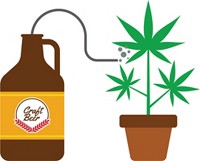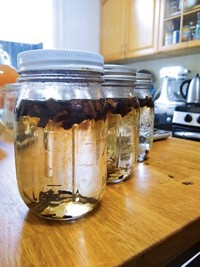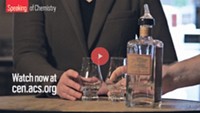Advertisement
Grab your lab coat. Let's get started
Welcome!
Welcome!
Create an account below to get 6 C&EN articles per month, receive newsletters and more - all free.
It seems this is your first time logging in online. Please enter the following information to continue.
As an ACS member you automatically get access to this site. All we need is few more details to create your reading experience.
Not you? Sign in with a different account.
Not you? Sign in with a different account.
ERROR 1
ERROR 1
ERROR 2
ERROR 2
ERROR 2
ERROR 2
ERROR 2
Password and Confirm password must match.
If you have an ACS member number, please enter it here so we can link this account to your membership. (optional)
ERROR 2
ACS values your privacy. By submitting your information, you are gaining access to C&EN and subscribing to our weekly newsletter. We use the information you provide to make your reading experience better, and we will never sell your data to third party members.
Food Science
Newscripts
Quicker liquor and printed drinks
by Arminda Downey-Mavromatis
March 19, 2022
| A version of this story appeared in
Volume 100, Issue 10
Age isn’t everything
Martin Janousek doesn’t want to wait for a good, stiff drink. How is it possible, he asks, that we can send people to the moon, but we have to sit around for months or years waiting for booze to mature? Janousek’s frustration over the long maturation timeline of spirits led him to cofound Bespoken Spirits with Stu Aaron. The company speeds up the maturation cycle for spirits, using novel technology and careful analysis to produce liquor in record times with flavor profiles that compare to the finest aged spirits.

Fermentation and distillation are already replete with specialized chemical and engineering methods, so although Bespoken carefully selects base spirits for the flavor compounds inherent in those early stages, those early stages are not the focus of its work. The company instead makes the maturation process science driven—and much faster. Scientists and engineers at the company run chemical and sensory analyses to understand the starting spirits. From there, they combine spirits with select microstaves—small pieces of treated wood that mimic the barrel part of barrel aging—and place them in the ACTivator, a chemical reactor of sorts, in which conditions are varied and the spirit matures. During the process, they control for several key compounds, including vanillin, whiskey lactones, ethyl acetate, furfural, and guaiacol. In only a few days, the starting spirit becomes the liquor of a customer’s choosing, and information about the liquor is fed back into the system for future use.
“For us, it’s really about being able to tailor the aroma, taste, and color,” Janousek tells Newscripts.
The process allows for not only quicker liquor but more sustainable sipping as well. According to the company, its process uses “less than 3% of the wood, 1% of the energy and a fraction of the water” typically used in barrel-aged beverages.
Curious chemists in many states can try Bespoken Spirits’ award-winning brand. And distillers dissatisfied with their existing stock can use the company’s technology to create a more favorable spirit.
Printed, not stirred

Like your lime soda with extra zest? A sweet tea with an untraditional sweetener? The molecular beverage “printer” Cana One aims to make it for you. The cartridge-based beverage system relies on a spirits cartridge, a sugar cartridge, a carbonation cylinder, water, and around 85 flavor compounds to create customized cold or room-temperature drinks.
A drink’s taste and nutritional and sensory profiles arise “from chemicals and compounds that are really trace levels—ppb and ppt,” says Lance Kizer, chief science officer at Cana Technology. The Cana One comes with a range of preprogrammed beverage recipes, “and the device knows exactly how to precisely print out each of those ingredients in the right proportion into a bulk fluid,” Kizer tells Newscripts.
Dosing the flavor compounds precisely and consistently was a design challenge for the Cana engineering team, Kizer says, as was optimizing the space within the system to allow for the widest variety of drinks for the widest variety of consumers. There were materials challenges: wine, for example, contains terpenes that may not be compatible with certain plastics or rubbers. There’s also flavor compounds’ volatility, for which Cana engineers created mechanical controls to prevent evaporation. Cana Technology was spun out of the Production Board, a sustainability-driven tech incubator. The Cana One can reduce a consumer’s participation in the waste-heavy beverage industry, which ships packaged drinks made mostly of water over great distances to get to the kitchen counter.
If you want to own a Cana One, you can reserve one of the first 10,000 devices for $499. The price jumps to $799 for later adopters. This Newscriptster isn’t sure she has the cash (or counter space) for a new device but would love to hear from the first round of Cana consumers.
Please send comments and suggestions to newscripts@acs.org.





Join the conversation
Contact the reporter
Submit a Letter to the Editor for publication
Engage with us on Twitter